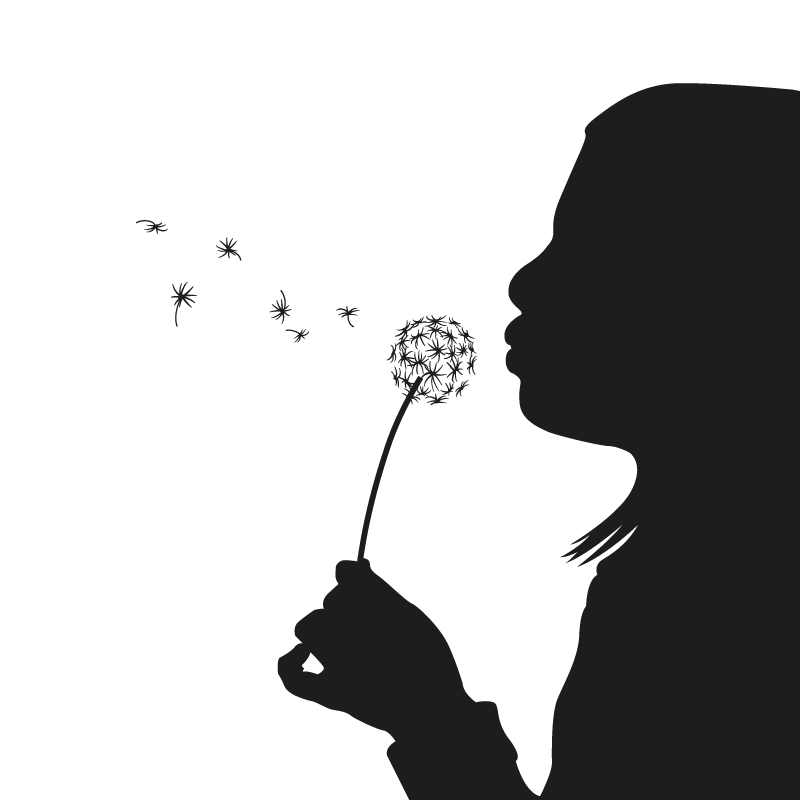| 일 | 월 | 화 | 수 | 목 | 금 | 토 |
|---|---|---|---|---|---|---|
| 1 | 2 | 3 | 4 | |||
| 5 | 6 | 7 | 8 | 9 | 10 | 11 |
| 12 | 13 | 14 | 15 | 16 | 17 | 18 |
| 19 | 20 | 21 | 22 | 23 | 24 | 25 |
| 26 | 27 | 28 | 29 | 30 | 31 |
- parasite highlights
- 기생충
- 기생충 의미
- 신종코로나바이러스
- COVID19
- 대종상 감독상
- 최헤림tv
- 기생충 완전분석
- 최혜림 TV
- 봉준호감독
- 기생충 상징
- #영화비교
- greatest leaders
- parasite hiding
- 최혜림tv
- parasite analysis
- 기생충 완전해석
- 기생충 해석
- History's Greatest Leader?
- parasite review
- 기생충 아카데미
- #최혜림
- churchill roosevelt
- COVID-19
- 아카데미작품상
- greatest leaders in history
- 기생충 분석
- 코로나바이러스
- 기생충 의미해석
- 기생충 비하인드
- Today
- Total
You are a winner!
[희생Sacrifice]영화 "인생은 아름다워" 복선 3가지? (ENG Three Foreshadows in Movie " Life is Beautiful') 본문
[희생Sacrifice]영화 "인생은 아름다워" 복선 3가지? (ENG Three Foreshadows in Movie " Life is Beautiful')
세이지리더십 2020. 6. 8. 15:51“인생은 아름다워”는 대표적인 이탈리아 영화로 1997년 로베르토 베니니 감독이 각본을 쓰고 제작하고 직접 주연 배우로 출연했습니다.
여주인공 니콜레타 브라스키는 실제 그의 부인이죠.
이 영화는 여전히 전세계 많은 사람들의 사랑을 받고 있는데요, 상복도 많아서 71회 아카데미 외국어영화상, 음악상, 남우주연상을 받았습니다.
러시아 혁명가 트로츠키는 멕시코 망명 중 스탈린에게 암살당할 것을 알고도 유언장에 “인생은 아름다워” 라고 적었다고 하는군요.
로베르토 베니니 감독은 이 문장에서 영감을 받아 제목으로 정하고 작품의 모티브를 얻었다고 합니다.
오늘은 이 영화에서 보여지는 다양한 복선들을 통해 인생은 아름다울 수 있는지 느껴보는 시간을 갖고자 합니다.
복선 1: 쇼펜하우어 “삶의 의지”
영화의 배경은 1939년 이탈리아 아레쪼입니다.
파시스트 무솔리니가 통치하던 시절, 정치 사회적으로 혼란했던 어려운 시기였죠
2차세계대전 발발이 바로 코앞인 엄청난 비극을 암시하는 시대의 첫번째 복선은 바로 쇼펜하우어의 ‘삶의 의지’입니다.
쇼펜하우어는 ‘의지와 표상으로서의 세계’(1819)에서 이성중심의 이전의 철학자들과 달리 실제로 인간은 ‘삶에의 의지’에 지배를 받는 존재라고 말했습니다.
주인공 귀도의 인생철학은 “의지만 있으면 무엇이든지 이룰 수 있다”로 귀결된다고 해도 과언은 아니죠.
귀도가 우연히 만나 사랑에 빠진 상류층 출신 도라에게는 이미 결혼을 약속한 사람이 있었죠.
하지만 귀도는 포기하지 않습니다.
귀도는 도라에 대한 자신의 진심어린 사랑을 지속적으로 표현해요.
그의 마음을 받아들인 도라는 약혼자를 남겨두고 그와 함께 도망치게 되죠.
귀도의 한결 같은 사랑의 의지입니다.
수용소에 함께 들어온 도라를 안심시키기 위해 귀도는 몰래 마이크에 대고 자신과 조슈아의 안부를 전합니다.
우리는 괜찮다고 그리고 삶을 포기하지 말고 기다리자고 마치 당부하는 듯합니다.
귀도는 삶의 의지가 주위의 환경으로 굴복 되지 않음을 상기시키죠
고통을 받아들이는 삶을 선택해야 근본적인 만족감을 얻을 수 있다는 쇼펜하우어의 인생관을 보여주고 있습니다.
귀도와 그의 삼촌, 그리고 아들 조슈아는 하필이면 조슈아 생일날 유대인 수용소로 끌려가게 됩니다.
그들은 참혹한 유대인 수용소 생활을 시작하게 되죠.
귀도는 조슈아에게 단체 게임이라고 속이고 끊임없이 그를 지키기 위해 정말 다양한 재치를 발휘합니다.
유대인 수용소에서 많은 사람들이 죽어갔지만, 천진난만한 조슈아는 아버지의 이야기를 그대로 믿었기 때문에 아무런 의문을 품지 않고 살아남게 되죠.
귀도는 마치 부인 도라와의 사랑에 포기하지 않았던 것처럼 아들을 지키기 위해 자신의 온 힘을 다합니다.
비참한 현실 속에서 웃음을 잃지 않는 주인공 귀도는 삶의 의지를 긍정적으로 행동으로 보여주고 있어요.
쇼펜하우어의 철학처럼 귀도의 맹목적인 의지가 바로 비극적인 삶을 희극적인 요소로 승화시키고 있습니다.
복선 2 오펜바흐 “뱃노래”
귀도와 도라를 결정적으로 만나게 해 준 곳은 바로 오펜바흐의 오페라 공연장입니다.
오펜바흐는 유대인계로 독일에서 태어났지만 프랑스에 정착하면서 개명을 하게 되죠.
독일에서 태어난 유대인 작곡가의 ‘호프만의 이야기’ 2막에 나오는 ‘뱃노래’가 아이러니하게도 바로 유대인 귀도와 이탈리아인 도라를 이어주는 곡이죠.
수용소에서 웨이터로 일하게 된 귀도는 축음기를 발견하고 몰래 오펜바흐의 ‘뱃노래’를 크게 틀어 놓습니다.
귀도는 사랑하는 사람을 위해 모든 용기를 다합니다.
음악을 들으며 눈물 흘리는 도라.
정말이지 가슴 절절한 애절한 장면입니다.
우리의 애정을 싣고 이 행복의 세월을 지나 시간은 빠르게 돌아오지 않네.”
오펜바흐 ‘뱃노래’ 가사말처럼 그들의 돌이킬 수 없는 슬픈 사랑이 애잔하게 들려 옵니다.
귀도는 위험을 무릅쓰고 여자들이 수감되어 있는 수용소로 가서 도라를 찾아나섭니다.
하지만 안타깝게도 경비병에게 붙들리고 말죠.
바로 이 영화의 두번째 복선은 오펜바흐의 ‘뱃노래’의 더 이상 지속될 수 없는 애절한 귀도와 도라의 사랑입니다.
복선3, 탱크 “아버지의 선물”
귀도와 도라에게는 조슈아라는 아들이 생깁니다.
조슈아가 아끼는 애착 장난감 탱크가 바로 세번째 복선이죠.
조슈아가 땅바닥에 떨어뜨린 장난감을 귀도가 찾아서 가져다 줍니다.
왜 하필이면 가장 좋아하는 장난감이 탱크일까요?
전쟁을 상징하고 있으며, 행복을 돌려다 주는 사람은 아버지 귀도임을 암시하고 있습니다.
귀도는 강제수용소에서 오로지 아들 조슈아를 안심시키기 위해 1000점을 제일 먼저 따는 우승자에게는 진짜 탱크가 상으로 주어진다고 말합니다.
귀도는 현재 자신들이 가장 높은 점수를 가지고 있다고 조슈아를 안심시키죠.
귀도는 정말 밉지 않은 거짓말 선수입니다.
전쟁 끝나가는 지점에 귀도는 아들 조슈아에게 마지막 당부를 합니다.
경비병에게 붙잡혀 곧 죽음을 맞이한다는 것을 안 귀도는 그래도 끝까지 웃음을 잃지 않죠.
오히려 조슈아를 위해 장난치듯 쾌활하게 우스꽝스러운 모습으로 성큼성큼 걸어갑니다.
끝까지 조슈아를 안심시키고 그래도 아쉬워서 자꾸 뒤돌아보는 귀도의 모습이 가슴 뭉클합니다.
온 세상이 조용해진 후 조슈아는 숨어있던 캐비넷 밖으로 나옵니다.
진짜 상으로 탱크를 받았다고 기뻐하죠. 미국 장병과 함께 탱크를 타고 가던 중 엄마 도라를 만납니다.
그리고 마지막 장면 어른이 된 조슈아의 나레이션이 흘러나옵니다.
“아버지가 희생한 이야기 그것이 아버지가 주신 귀한 선물이었다.”
조슈아의 애착 장난감 탱크보다 더 큰 위로와 위안을 준 것은 바로 아버지의 희생적인 사랑이었으니까요.
쇼펜하우어는 “행복에 가장 직접적인 영향을 주는 것은 명랑한 마음이다"라고 말했죠.
어떠한 상황에서도 결코 웃음을 잃지 않는 귀도.
매사 긍정적으로 생각하고 또 그렇게 믿으며 적극적으로 행동합니다.
그는 가족에 대한 맹목적인 사랑으로 자신을 희생하는 위대한 아버지의 상을 연출하고 있어요.
이 영화가 보여주는 인생 희비극을 보면서 과연 어떻게 사는 인생이 아름다운 것일까 생각해 보셨나요?
자, 오늘의 메시지입니다.
유명한 코미디언 찰리 채플린은 “인생은 가까이서 보면 비극이지만, 멀리서 보면 희극이다”라고 말했죠.
인생이란 누구에게나 희비극이 동시에 패키지로 배달오는 것 같습니다.
나에게만 오는 비극은 없으니까요.
이또한 또 지나갑니다.
귀도처럼 사랑과 의지가 있다면, 인생은 충분히 아름답게 살 만한 가치가 있지 않을까요?
“Life is Beautiful(La vita è bella)” is a representative Italian film written and directed by Roberto Benini in 1997. The heroine Nicoletta Braski is actually his wife.
The film is still loved by many people all over the world, and it has a lot of awards.
The Russian revolutionary politician, Leon Trotsky said that even though he was assassinated by Joseph Stalin during his Mexican exile, he wrote, "Life is beautiful” in a will. Roberto Benini was inspired by this sentence and decided to title it and gained the motif of his work
Today, I want to take a moment to see how life can be beautiful through the various foreshadows shown in this movie.
Foreshadow1: Arthur Schopenhauer “The Will of Life”
The background of the film is Arezzo, Italy, 1939. When Fascist Mussolini ruled, it was a difficult period of political and social turmoil. The first foreshadow of the film is Schopenhauer's will of life when the outbreak of World War II of enormous tragedy is right in front of them.
In Schopenhauer's "World as Will and Representation" (1819), unlike the former rational philosophers, humans are actually subject to "the will to life."
It is no exaggeration to say that Guido's philosophy of life leads to “anything can be achieved if there is a will”.
Dora who Guido fell in love had already promised marriage with a upper class guy. But Guido does not give up. Guido continues to express his sincere love for Dora. Dora accepts his heart and runs away with him, leaving a fiancé. It is the unwavering will of love.
To reassure Dora as she enters the camp, Guido secretly speaks to Microphone with his regards and Joshua. It's as if we're okay and ask her not to give up waiting. Guido reminds us that the will of life does not yield to our surroundings. It shows how Schopenhauer's view of life can be achieved by choosing a life that accepts pain.
Guido deceives Joshua as a group game and uses a wide variety of wit to keep him comfort.
Many people died in the Jewish camp, but innocent Joshua survived without questioning because he believed his father's story. Guido does his best to protect his son, as if he did not give up in love with his wife Dora.
Guido, who never loses laughter in a miserable reality, shows his willingness to act positively. Like Schopenhauer's philosophy, Guido's blind will sublimates tragic life into a comic element.
Foreshadow 2 Offenbach “Barcarolle
It was Offenbach's opera house that made the definitive encounter with Guido and Dora. Offenbach was born Jewish in Germany but was renamed as he settled in France. The song "Barcarolle" in Act 2 of Hoffmann's story by the German Jewish composer, ironically connects the Jewish Guido with the Italian Dora.
Guido, working as a waiter at the camp, discovers the phonograph and secretly plays Offenbach's "Barcarolle". Guido does all the courage for his loved one. Dora sheds tears while listening to music. This is a heartbreaking scene. “The time does not come back quickly through the years of happiness with our affections.” Their sad and irresistible love sounds like the words of Offenbach's “"Barcarolle".”
Guido risks to go to the women camp and seek out Dora. But unfortunately, he was caught by the guard. The second foreshadow of this film is that Guido and Dora's love can't last anymore like the sadness of love of Offenbach's "Barcarolle".
Foreshadow 3 Tank :father’s gift
Guido and Dora have a son named Joshua. Joshua's favorite toy tank is the third foreshadow. Guido finds and brings the toy Joshua dropped on the ground. Why is your favorite toy a tank? It symbolizes war and implies that the one who brings happiness is Guido.
Guido says the real tank is awarded to the winner who first scores 1000 points in the camp solely to reassure his son Joshua.
Guido reassures Joshua that they currently have the highest score. He is a veteran white liar.
At the end of the war, Guido makes a final request to his son Joshua.
Guido doesn't lose his laugh until the end because he is caught by a guard and is about to die. Rather, he walks stridely, and jokingly for Joshua. Joshua is relieved to the end, but it's a pity that Guido keeps looking back.
After the whole world is quiet, Joshua comes out of the hiding cabinet. He is glad he got a real tank for a first prize. He meets Dora while riding a tank with an American soldier. And the narration of Joshua, who became an adult in the last scene, flows out.
“This is the sacrifice my father made. This was his gift to me.”
It was father's sacrificial love that gave him more comfort than Joshua's attached toy tank.
Schopenhauer said, “The most direct influence on happiness is a cheerful heart.” Guido never lose laughter under any circumstances.
He thinks positively in everything and believe in it and act positively. He is presenting the image of a great father who sacrifices himself with blind love for his family.
Have you ever wondered how life is beautiful as you watch the life dramas shown in this film?
Well, this is today's message.
The famous comedian Charlie Chaplin said, "Life is a tragedy up close, but a comedy up in the distance."
Life seems to be delivered in a package to everyone at the same time. There is no tragedy that only comes to me. This also passes by. If we have love and will like Guido, isn't life worth living beautifully enough?





















